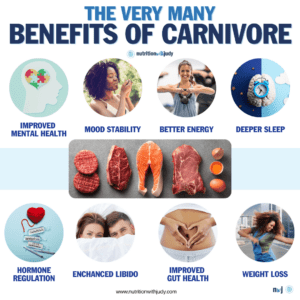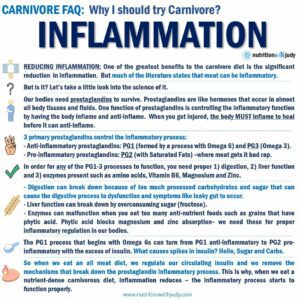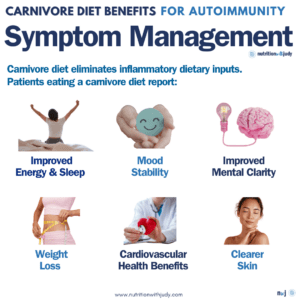

Is Blue Cheese Good for You?


When considering whether blue cheese is good for you, it’s important to look into its nutritional benefits and how it can fit into any diet. Blue cheese is packed with nutrients such as calcium, protein, and beneficial fats, which are essential for maintaining strong bones, muscle function, and overall health.
For those following a carnivore diet, blue cheese can be an excellent addition, providing a variety of flavors and nutritional benefits while still sticking to the diet’s principles. Incorporating blue cheese into dishes such as steak toppings, burger enhancements, or as a flavorful addition to your favorite Carnivore meals can make your meals more enjoyable and nutritionally diverse.
Let’s take a closer look at the health benefits of blue cheese, if there are any risks with this food, and its role within a carnivore diet.
What Is the Carnivore Diet?


The carnivore diet, focusing on animal-based foods, offers various adaptations to meet individual needs and health objectives. Each variation boasts unique features:
- Beef-Only Carnivore Diet: This simple, effective approach involves consuming only beef, making it ideal for elimination diets. It’s recommended for those with autoimmune or chronic health issues seeking support or remission. However, for long-term nutritional balance, incorporating a variety of meats is often necessary.
- Lion Diet: The lion diet includes only ruminant meats, salt, and water. Often used as an initial elimination protocol, it allows for the gradual reintroduction of other meats. Ideal for individuals with autoimmune and gut healing needs, the lion diet’s simplicity is beneficial for starting dietary changes.
- Nose-to-Tail Carnivore Diet: Advocating for the consumption of all parts of the animal, including organ meats, this variation ensures comprehensive nutrient intake. Caution is advised with liver and kidney consumption, particularly for those with liver conditions, due to the risk of nutrient imbalances such as vitamin A toxicity.
- Meat-Only Carnivore Diet: Expanding to include all muscle meats while excluding organ meats, dairy, and eggs, this diet is suitable for those seeking a foundational elimination diet and tolerating all muscle meats.
- Zero-Carb Carnivore Diet: Focusing on zero to minimal carbohydrates, this diet includes meat, animal fat, dairy, and eggs, with optional seasonings. Suitable for those without autoimmune or chronic health issues who tolerate dairy and eggs, it’s a great option for maintaining low-carb intake.
- Carnivore Keto Diet: Combining low-carb, high-fat principles of the ketogenic diet with the carnivore diet, this variation mimics fasting effects while offering diet variety with low-toxicity keto options such as avocados and coconut oil. It’s recommended for metabolically healthy individuals who have mostly healed their chronic health issues.
- Carnivore-Ish Keto Diet: This flexible approach incorporates more ketogenic elements while remaining meat-focused. It includes keto sweeteners, nut products, and other keto varieties, recommended for metabolically healthy individuals who have healed and don’t have food addiction issues.
- Animal-Based Diet: More inclusive than the strict carnivore diet, it centers on animal products but allows for fruits, honey, and raw dairy. Typically suited for healthy individuals with high metabolic flexibility and elite athletes, this diet offers broader dietary options while maintaining core principles. We do not recommend this variety in our practice due to the risks of mixing fruit with high fat.
What Are the Benefits of the Carnivore Diet?


The carnivore diet has gained popularity for its countless health benefits and simplicity. Advocates of this diet report various improvements in their physical and mental well-being, which can be attributed to the nutrient-dense nature of animal products and the elimination of potentially problematic plant-based foods. Here are some key benefits and reasons why individuals might consider adopting the carnivore diet:
1. Nutrient Density and Bioavailability
Animal products are rich in essential nutrients, including high-quality protein, essential fatty acids, vitamins (such as B12, A, D, and K2), and minerals (such as iron, zinc, and selenium). These nutrients are highly bioavailable, meaning they are easily absorbed and utilized by the body. For example, heme iron from meat is more readily absorbed than non-heme iron from plant sources, which can be crucial for preventing anemia and maintaining energy levels.
2. Weight Loss and Metabolic Health
Many people turn to the carnivore diet for weight loss. The diet’s high protein and fat content can promote satiety, reducing overall calorie intake. Additionally, by eliminating carbohydrates, the diet can help stabilize blood sugar levels and improve insulin sensitivity. This can be particularly beneficial for individuals with metabolic syndrome, type 2 diabetes, or those struggling with obesity.

3. Reduction in Inflammation
A significant number of people report a reduction in chronic inflammation when following the carnivore diet. This could be due to the elimination of foods that often cause inflammation, such as processed carbohydrates, sugars, and plant-based anti-nutrients such as lectins and oxalates. By consuming anti-inflammatory omega-3 fatty acids found in fatty fish and grass-fed meats, individuals may experience relief from conditions such as arthritis, joint pain, and other inflammatory diseases.
4. Improved Mental Health
The brain thrives on fat, and the high-fat content of the carnivore diet can support cognitive function and mental clarity. Many individuals report improvements in mood, reduced anxiety, and better focus. This has been linked to stable blood sugar levels and the elimination of inflammatory foods that can negatively affect brain health.
5. Digestive Health
For those with digestive issues, the carnivore diet can offer relief. By removing fibrous plant foods, which can cause bloating, gas, and irritable bowel syndrome (IBS) in some people, the diet allows the digestive system to rest and heal. Additionally, the diet’s simplicity makes it easier to identify and eliminate food sensitivities.

6. Autoimmune Disease Management
The carnivore diet can be an effective elimination diet for individuals with autoimmune diseases. By removing common triggers found in plant foods, such as gluten, lectins, and other anti-nutrients, individuals may experience a reduction in symptoms and even remission of their condition. This approach is particularly helpful for diseases such as rheumatoid arthritis, lupus, and multiple sclerosis.
7. Simplicity and Satiety
One of the major appeals of the carnivore diet is its simplicity. There is no need to count calories, measure portions, or track macronutrients. This straightforward approach can reduce the stress and complexity often associated with other diets. Moreover, the high-protein and high-fat content promotes satiety, making it easier to stick to the diet without feeling deprived.
8. Enhanced Physical Performance
Many athletes and fitness enthusiasts find that the carnivore diet supports their physical performance. The high intake of protein is essential for muscle repair and growth, while the steady energy supply from fats can sustain endurance activities. Additionally, the reduction in inflammation can lead to quicker recovery times and reduced injury risk.
9. Hormonal Balance
The carnivore diet can support hormonal health by providing the essential building blocks for hormone production. Fats and cholesterol are crucial for synthesizing hormones, including testosterone and estrogen. By ensuring an adequate intake of these nutrients, individuals may experience improvements in hormonal balance, which can affect everything from energy levels to reproductive health.
What Are the Benefits of Blue Cheese?


Blue cheese, known for its distinct flavor and creamy texture, offers a variety of health benefits due to its rich nutrient profile. Packed with essential nutrients, blue cheese is a valuable addition to a balanced diet.
Nutrient Profile
Protein: Blue cheese is an excellent source of high-quality protein, which is essential for muscle repair, immune function, and overall body maintenance.
Calcium: High in calcium, blue cheese supports strong bones and teeth, aids in muscle function, and plays a crucial role in nerve transmission and blood clotting.
Phosphorus: This mineral works in conjunction with calcium to maintain bone and teeth health, and is also vital for energy production and cellular function.
Vitamin A: Blue cheese is rich in vitamin A, which is important for maintaining healthy vision, skin, and immune function.
Vitamin B12: Essential for nerve function and the production of DNA and red blood cells, vitamin B12 is abundant in blue cheese.
Probiotics: The fermentation process used to make blue cheese introduces beneficial bacteria, which can promote gut health and boost the immune system.
Health Benefits
Bone Health: The high calcium and phosphorus content strengthens bones and reduces the risk of osteoporosis.
Immune Support: Probiotics and vitamins A and B12 enhance immune function and help protect against infections.
Digestive Health: Probiotics improve gut health by maintaining a healthy balance of gut bacteria.
Incorporating blue cheese into your diet can enhance overall health by providing essential nutrients that support various bodily functions. It is also a lower-carb cheese option, ideal for individuals tracking these macros.
Should I Eat Blue Cheese In My Carnivore Diet?


Including blue cheese in a carnivore diet is a nuanced decision that depends on individual health goals and tolerances. While the carnivore diet primarily emphasizes meat, some variations allow for dairy products such as blue cheese. Blue cheese is rich in protein, calcium, vitamin A, and probiotics, offering numerous health benefits such as improved bone health, immune support, and digestive health.
However, whether to include blue cheese in a carnivore diet should be personalized. Some individuals may thrive with the added nutrients and flavors from blue cheese, while others might experience adverse reactions. Those with lactose intolerance or dairy sensitivities may find that blue cheese exacerbates their symptoms.
Additionally, individuals with autoimmune conditions or chronic inflammation may need to avoid dairy products altogether to prevent flare-ups. Conditions such as small intestinal fungal overgrowth (SIFO) and Chronic Inflammatory Response Syndrome (CIRS) may also warrant temporary removal of foods containing mold including blue cheese. While ingesting moldy foods isn’t responsible for causing SIFO or CIRS, individuals with these conditions may not tolerate these while healing.
It’s essential to approach this decision with an individualized mindset. Start by introducing blue cheese in small amounts and monitor your body’s reactions. If you experience digestive issues, inflammation, or other negative symptoms, it may be best to exclude it from your diet. On the other hand, if you tolerate it well and enjoy its benefits, blue cheese can be a valuable addition to your carnivore diet. Always consult with a healthcare provider to tailor dietary choices to your specific needs and health goals.
Should I Include Other Cheeses In My Carnivore Diet?


Deciding whether to include cheese in a carnivore diet should be based on personal preference and individual health goals. For those with food addictions or seeking weight loss, cheese might not be the best choice, as it can be calorie-dense and potentially trigger cravings for more food. Cheese is rich in fat and protein, which can be beneficial, but it also contains lactose, which some people may have difficulty digesting.
Opting for raw cheese or goat cheese may be more tolerable for individuals with difficulties with lactose. Soft cheese options such as cream cheese and ricotta cheese are also lower in histamine levels, and may be a better option for individuals with histamine intolerance or mast cell activation issues.
Many people thrive on the carnivore diet without incorporating cheese, focusing solely on meat. This approach can help simplify the diet and ensure that you’re consuming nutrient-dense, easily digestible foods. However, for those who tolerate dairy well and enjoy its taste, cheese can add variety and additional nutrients, such as calcium and vitamin K2, to their diet.
It’s important to listen to your body and monitor how you feel when consuming cheese. If you decide to include it, start with small amounts and pay attention to any digestive issues or changes in your weight and cravings. Consulting with a healthcare provider or nutritionist can also provide personalized guidance.
At the end of the day, whether or not to include cheese in your carnivore diet is a personal decision. Many people achieve excellent health outcomes without it, so focus on what works best for you and your individual needs.
Closing Thoughts On Blue Cheese and the Carnivore Diet
The carnivore diet offers numerous health benefits, from weight loss and reduced inflammation to improved mental health and digestive function. Blue cheese, rich in protein, calcium, vitamins, and probiotics, can be a valuable addition to the diet, supporting bone health, immune function, and gut health. However, its inclusion should be carefully considered based on individual health goals and tolerances.
For those with food addictions, aiming for weight loss, or with certain health conditions, cheese might not be the best option due to its calorie density and potential to trigger cravings or reactions. Many thrive on a strict carnivore diet without cheese, highlighting the diet’s flexibility and adaptability to individual needs.
Deciding whether to include blue cheese or any cheese in the carnivore diet requires a personalized approach. It is essential to listen to your body, start with small amounts, and monitor your reactions. Consulting with a healthcare provider can offer tailored advice, ensuring that dietary choices align with personal health goals.
Ultimately, the carnivore diet’s success lies in its nutrient density. Whether or not cheese is included, focusing on what works best for your body will lead to optimal health outcomes. By prioritizing nutrient-dense animal foods and making informed choices, individuals can tailor the diet to their unique needs and thrive.
Work With Our Trusted Carnivore Diet Functional Nutritional Therapy Practitioners
The Nutrition with Judy practice is honored to be a trusted carnivore diet practitioner support serving clients from around the globe. We’re passionate about helping our clients achieve root-cause healing in order to lead the best quality of life possible that’s nearly symptom-free. Our team is dedicated to providing nuanced nutritional tips for your wellness journey. We welcome you to explore our free resources and are always available to support you through personalized protocols. Our Symptom Burden Assessment (SBA) is the perfect starting point for discovering your root cause and is required to work with our team— you can learn more in-depth about this powerful tool here.
Start your root-cause healing journey today and contact us any time with any questions or concerns.
DISCLAIMER: This content is for educational purposes only. While we are board-certified in holistic nutrition and are nutritional therapy practitioners, we are not providing medical advice. Whenever you start a new diet or protocol, always consult with your trusted practitioner first.





